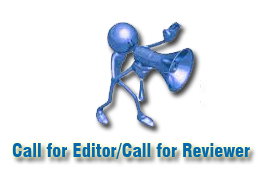Vygotsky Theory Based on Mathematics Literacy in The New Normal Era
Abstract
Keywords
Full Text:
PDFReferences
Astleitner, H. (2005). Principles of Effective Instruction-General Standards for Teachers and Instructional Designers. Journal of Instructional Psychology, 32(1), 3–8.
Bibi, S., & Jati, H. (2015). Efektivitas model blended learning terhadap motivasi dan tingkat pemahaman mahasiswa mata kuliah algoritma dan pemrograman. Jurnal Pendidikan Vokasi, 5(1), 74–87. https://journal.uny.ac.id/index.php/jpv/article/view/6074/5258
Chaptelin & Nardi. (2009). Kamus Lengkap Psikologi. Jakarta: PT Raja grafindo Persada.
Hunt, G., Wiseman, D., & Touzel, T. (2009). Effective teaching: preparation and implementation. Charles C Thomas Publisher.
Khotimah, K. (2020). Exploring Online Learning Experiences During the Covid-19 Pandemic. December. https://doi.org/10.2991/assehr.k.201201.012
Kusdiyanti, H., Zanky, M. N., & Wati, A. P. (2021). HYLBUS (Hybrid Learning Based on Asynchoronous Learning Network): Inovation of Learning Model for Hight School to be up Againts Industrial Revolution 4.0. Journal of Physics: Conference Series, 1807(1), 0–6. https://doi.org/10.1088/1742-6596/1807/1/012003
Leont’ev, A. A. (1981). Psychology and the language learning process. Pergamon.
Leont’ev, A. N. (1978). Activity, consciousness, and personality.
Murray, R. K., Granner, D. K., & Rodwell, V. W. Biokimia harper (27 ed.). Jakarta: Buku Kedokteran Nakayama, M., Yamamoto, H., Santiago, R., Nakayama, M., Yamamoto, H., & Santiago, R. (2007). The Impact of Learner Characteristics on Learning Performance in Hybrid Courses among Japanese Students. The Electronic Journal of E-Learning, 5, 195–206. www.ejel.org
NCTM. (2000). Principles and Standards for School Mathematics (Issue 1961). NCTM.
NCTM. (2009b). Principles and Standards for School Mathematics. NCTM.
OECD. (2018). PISA 2021 Mathematical Framework (Draft).
Özgen, K., & Bindak, R. (2011). Lise öğrencilerinin matematik okuryazarlığına yönelik öz-yeterlik inançlarının belirlenmesi. Kuram ve Uygulamada Eğitim Bilimleri, 11(2), 1073–1089.
Phillips, D. C. K., Bardsley, M. E., Bach, T., & Gibb-Brown, K. (2009). “ But I teach math!” The journey of middle school mathematics teachers and literacy coaches learning to integrate literacy strategies into the math instruction. Education, 129(3), 467–473.
Purmadi, A., & Hadi, M. S. (2018). Pengembangan Kelas Daring Dengan Penerapan Hybrid Learning Menggunakan Chamilo Pada Matakuliah Pendidikan Kewarganegaraan. Edcomtech Jurnal Kajian Teknologi …, 135–140.
Putra, I. A. (2015). Orientasi Hybrid Learning Melalui Model Hybrid Learning Dengan. 1(1).
Radford, L. (2013). View of Three Key Concepts of the Theory of Objectification: Knowledge, Knowing, and Learning. REDIMAT, 2(1), 7–44. https://hipatiapress.com/hpjournals/index.php/redimat/article/view/570/pdf
Radford, Andrew dkk. (2015). Linguistics: An Introduction, second mathematical literacy. Diakses pada tanggal 12 Desember 2015.
Radford, L. (2018). The theory of objectification and its place among sociocultural research in mathematics education. Revista Internacional de Pesquisa Em Educação Matemática, 6(2), 187–206.
Roth, W. ., & Lee, Y. J. (2014b). “Vygotsky’s Neglected Legacy”: Cultural-Historical Activity Theory. Review of Educational Research, 77(2), 186–232. https://doi.org/10.3102/0034654306298273
Roth, W. M., & Radford, L. (2014). A cultural-historical perspective on mathematics teaching and learning (Vol. 2. Springer science & business media.
Sfard, A. (2008). Thinking as communicating: Human development, the growth of discourses and mathematizing. Cambridge, U.K.: Cambridge University. Press.
Silver, E. A., & Herbst, P. (2007). Theory in mathematics education scholarship. In Second handbook of research on mathematics teaching and learning (Vol. 1, pp. 39–67).
Son (2015). Psychological injury in mathematical literacy: A meta-analytic review. PsychosocialIntervention, 24(1)
Sulistyanto, H. (2021). The Potential of Hybrid Learning Models in Improving Students ’ Critical Thinking Ability Potensi Model Hybrid Learning dalam Peningkatan. Urecol Journal. Part A: Education and Training, 1(1), 1–8.
Surjono, H. D. (2010). Membangun course e-learning berbasis Moodle. In Universitas Negeri Yogyakarta.
Teije, A. (2021). M Odular D Esign P Atterns for H Ybrid L Earning and R Easoning S Ystems : a Taxonomy , Patterns and Use Cases. January 2007, 1–20.
Thompson, D. R., & Chappell, M. F. (2007). Communication and Representation as Elements in Mathematical Literacy. Reading & Writing Quarterly, 23(2), 179–196. https://doi.org/10.1080/10573560601158495
Wood, K., Jones, J., Stover, K., & Polly, D. (2011). STEM Literacies: Integrating Reading, Writing, and Technology in Science and Mathematics. Middle School Journal, 43(1), 55–62. https://doi.org/10.1080/00940771.2011.11461794
Yasukawa, K., Jackson, K., Kane, P., & Coben, D. (2018). Mapping the terrain of social practice perspectives of numeracy. In Numeracy as Social Practice (pp. 3–17). Routledge.
DOI: https://doi.org/10.18326/hipotenusa.v4i2.7408
Refbacks
- There are currently no refbacks.
Copyright (c) 2022 nila - ubaidah

This work is licensed under a Creative Commons Attribution-ShareAlike 4.0 International License.

This work is licensed under a Creative Commons Attribution-ShareAlike 4.0 International License.





